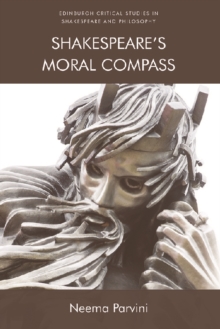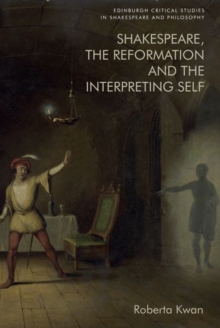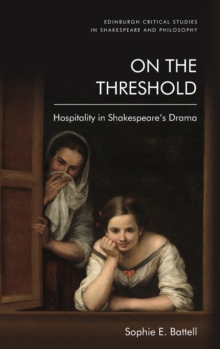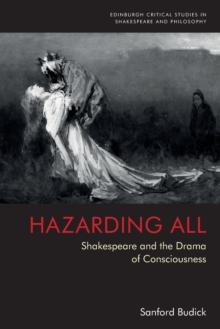
Listening for Theatrical Form in Early Modern England Digital (delivered electronically)
by Allison Deutermann
Part of the Edinburgh Critical Studies in Shakespeare and Philosophy series
Digital (delivered electronically)
- Information
Description
Examines the impact of hearing on the formal and generic development of early modern theatre Early modern drama was in fundamental ways an aural art form.
How plays should sound, and how they should be heard, were vital questions to the formal development of early modern drama.
Ultimately, they shaped the two of its most popular genres: revenge tragedy and city comedy.
Simply put, theatregoers were taught to hear these plays differently.
Revenge tragedies by Shakespeare and Kyd imagine sound stabbing, piercing, and slicing into listeners' bodies on and off the stage; while comedies by Jonson and Marston imagine it being sampled selectively, according to taste.
Listening for Theatrical Form in Early Modern England traces the dialectical development of these two genres and auditory modes over six decades of commercial theatre history, combining surveys of the theatrical marketplace with focused attention to specific plays and to the non-dramatic literature that gives this interest in audition texture: anatomy texts, sermons, music treatises, and manuals on rhetoric and poetics. Key Features Invites new attention to the theatre as something heard, rather than as something seen, in performanceProvides a model for understanding aesthetic forms as developing in competitive response to one another in particular historical circumstancesEnriches our sense of early modern playgoers' auditory experience, and of dramatists' attempt to shape it
Information
-
Available to Order - This title is available to order, with delivery expected within 2 weeks
- Format:Digital (delivered electronically)
- Pages:320 pages
- Publisher:Edinburgh University Press
- Publication Date:31/07/2017
- Category:
- ISBN:9781474426084
Other Formats
- Hardback from £57.70
Information
-
Available to Order - This title is available to order, with delivery expected within 2 weeks
- Format:Digital (delivered electronically)
- Pages:320 pages
- Publisher:Edinburgh University Press
- Publication Date:31/07/2017
- Category:
- ISBN:9781474426084



